Interviewing
-
 INTERVIEWING
INTERVIEWING Interviewing can be a nerve-racking experience for many. Preparation is the key to a successful interview.
The following tips can help you prepare for an outstanding interviewing experience and ease your worries.
Before the Interview:
Interview Preparation
Research school/program information in advance:
Check the school's website for helpful information about what is going on in the building.
Reflect on the following:
Reasons you want this position - You will have to "sell" your skills and abilities to the interview committee!
Strengths and weaknesses - It is likely you may be asked a question about your strengths and weaknesses. When thinking about weaknesses, also think about what strategies you've used to overcome them. This will prepare you for answering such questions.
Time and location of interview - Know exactly when and where your interview will take place. If you are not sure, it is okay to email a contact person the day before to confirm your interview time and location.
Interview format: There are many formats for an interview. When interviewing for positions in SPPS, you will usually be interviewed by a committee.
Practice, Practice, Practice: Many of the questions you will be asked will likely be behavioral based. Think about specific examples (to include the situation, what action you took and result of the action). This will help you prepare for your interview day.
The STAR method is a structured manner of responding to a behavioral-based interview question by discussing the specific situation, task, action, and result of the situation you are describing.
Situation: Describe the situation that you were in or the task that you needed to accomplish. You must describe a specific event or situation , not a generalized description of what you have done in the past. Be sure to give enough detail for the interviewer to understand. This situation can be from a previous job, from a volunteer experience, or any relevant event.
Task: What goal/outcome were you working toward?
Action: Describe the actions you took to address the situation with an appropriate amount of detail and keep the focus on YOU. What specific steps did you take and what was your particular contribution? Be careful that you don't describe what the team or group did when talking about a project, but what you actually did. Use the word "I, " not "we" when describing actions.
Result: Describe the outcome of your actions and don't be shy about taking credit for your actions. What happened? How did the event end? What did you do to resolve an issue/problem? What would you have done differently?
Day of the Interview:
Interview Tips
Early arrival- It is important that you are prompt for your interview. It is best to arrive at least 15 minutes prior to your scheduled time.
Appearance - Dress and grooming are important. Dress to project the image you would want the hiring manager to receive.
Non-verbal communication - Make eye contact. Be aware of your body language.
Verbal communication - The hiring manager wants to know if you can organize your thoughts and ideas effectively. Be sure to answer interview questions completely and concisely.
Attitude - Sell, but don’t oversell. Be willing to volunteer information and handle negative questions tactfully.
Stand out – Be memorable. Communicate what sets you apart from other candidates.
Be specific – Provide examples, use data.
The Interview
Common Interview Questions: It is likely that you will be asked behavioral -based questions in your interview. The following are topics that may be covered:
- Work/educational background and qualifications
- Classroom management strategies
- Experience working in diverse/inclusive environments
- Student achievement
- Communication
Express Interest in the position.
Ask questions : Have two or three questions prepared to ask the interview committee. This is another opportunity to "interview" the committee and ask questions that will let you know if this new assignment will be a good match for you. It may also provide you with the opportunity to show your interviewers that you did your homework on their school/program.
After the Interview:
Next Steps
Thank you letter: Although it is not required, many candidates elect to send thank you notes (either by mail or email) to each person with whom they met during the interview.
Self-evaluation: Reflect on the interview, what went well, areas where you can improve, how you can better address specific questions for future interviews
Helpful Sites/Tutorials for interviewing:
There are many helpful resources on the internet that provide tips for successful interviewing. The following are just a sample




